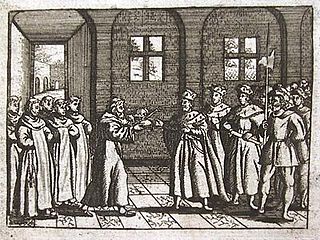The 820s decade ran from January 1, 820, to December 31, 829.
The 830s decade ran from January 1, 830, to December 31, 839.
The 840s decade ran from January 1, 840, to December 31, 849.
The 850s decade ran from January 1, 850, to December 31, 859.
The 860s decade ran from January 1, 860, to December 31, 869.
The 870s decade ran from January 1, 870, to December 31, 879.
The 790s decade ran from January 1, 790, to December 31, 799.
The 920s decade ran from January 1, 920, to December 31, 929.
The 990s decade ran from January 1, 990, to December 31, 999.

Year 855 (DCCCLV) was a common year starting on Tuesday of the Julian calendar.

Year 865 (DCCCLXV) was a common year starting on Monday of the Julian calendar.

Year 870 (DCCCLXX) was a common year starting on Sunday of the Julian calendar, the 870th year of the Common Era (CE) and Anno Domini (AD) designations, the 870th year of the 1st millennium, the 70th year of the 9th century, and the 1st year of the 870s decade.

Year 878 (DCCCLXXVIII) was a common year starting on Wednesday of the Julian calendar.
Year 893 (DCCCXCIII) was a common year starting on Monday of the Julian calendar.

Æthelwold or Æthelwald was the younger of two known sons of Æthelred I, King of Wessex from 865 to 871. Æthelwold and his brother Æthelhelm were still infants when their father the king died while fighting a Danish Viking invasion. The throne passed to the king's younger brother Alfred the Great, who carried on the war against the Vikings and won a crucial victory at the Battle of Edington in 878.

The Great Heathen Army, also known as the Viking Great Army, was a coalition of Scandinavian warriors who invaded England in 865 AD. Since the late 8th century, the Vikings had been engaging in raids on centres of wealth, such as monasteries. The Great Heathen Army was much larger and aimed to conquer and occupy the four kingdoms of East Anglia, Northumbria, Mercia and Wessex.
Events from the 10th century in the Kingdom of England.

Horik II, also known as Hårik or, in late sources, Erik Barn, was King of the Danes from the fall of Horik I in 854 to an unknown date between 864 and 873. During his reign the Danish kingdom showed tendencies of breaking up. After his demise under unknown circumstances, Denmark entered a long period of obscurity, until the rise of the Jelling dynasty in the 10th century.
Events from the 9th century in England.

The second season of the historical drama television series Vikings premiered on February 27, 2014 on History in Canada, and concluded on May 1, 2014, consisting of ten episodes. The series broadly follows the exploits of the legendary Viking chieftain Ragnar Lothbrok and his crew, and later those of his sons. The first season of the series begins at the start of the Viking Age, marked by the Lindisfarne raid in 793.






